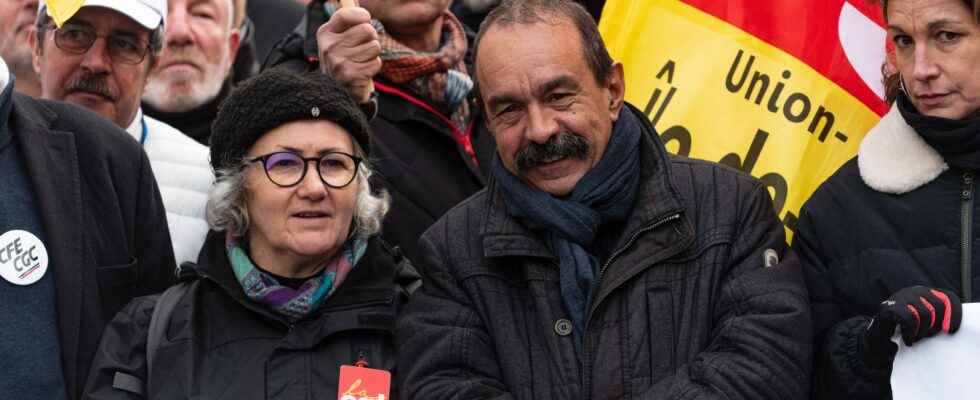A record number of opponents of the pension reform marched on Tuesday, January 31, to try to roll back the government. Everywhere in France, the processions displayed the same refusal of the flagship reform of Emmanuel Macron and his postponement of the legal age of departure to 64 years.
According to the unions, more than 2.5 million people marched in the country. The Ministry of the Interior counted half as many, but still more than 1.27 million. More than the first mobilization of January 19, and even more than the historic record of 2010, at the height of the protest against a previous pension reform. “This is one of the biggest demonstrations organized in our country for decades”, declared Laurent Berger, the number one of the CFDT, present in the Parisian procession.
On the strength of this new success, the eight main French unions have decided to extend the social movement. Gathered in the early evening at the headquarters of Force Ouvrière, they called for two new dates of mobilization: Tuesday February 7 and Saturday February 11.
“Mobilize when the debates take place”
“The government must hear the massive rejection of this project and withdraw it,” said Patricia Drevon, confederal secretary of Force Ouvrière, reading a press release from the inter-union (CFDT, CGT, FO, CFE-CGC, CFTC, Unsa, Solidarity, FSU). The inter-union called by next Tuesday “to multiply the actions, initiatives, meetings or general assemblies everywhere on the territory, in the companies and services, in the places of study, including by the strike”. She announced an inter-union news on the evening of February 7.
The CFDT had expressed a few weeks ago the wish for a mobilization on the weekend, which allows all employees, whoever they are, to mobilize. The fact of proposing these two dates is “a strategy shared by all the trade union organizations” and allows “all the people who can to join the processions”, declared Catherine Perret, CGT confederal secretary. “Today, the match is in parliament, the sequence will be short, we have to be able to mobilize when the debates take place, and we know that it is in the first half of February”, has of his side explained Marylise Léon, deputy general secretary of the CFDT.
Elisabeth Borne hears the “questions” and the “doubts”
“We will encourage all initiatives that go through strikes, including renewable strikes wherever it is decided by the majority of the company concerned,” said Catherine Perret. The refiners have already announced a 72-hour strike from February 6, while the CGT Cheminots and SUD-Rail have proposed a strike on February 7 and 8, possibly before a renewable strike from mid-February, during the winter holidays. These start on Saturday February 4 for zone A (Bordeaux, Lyon, etc.), Saturday February 11 for zone B (Aix-Marseille, Lille, Strasbourg, etc.) and Saturday February 18 for zone C (Paris, Toulouse, Montpellier etc.).
The Minister of Public Accounts Gabriel Attal on Tuesday called on the unions to “respect the French who take a well-deserved vacation”. “My message is clear to the unions: if you continue to mobilize, continue to do so while respecting the French people who work, who get up in the morning, because in the end when there are blockages, it is always them who toast, the French who go to work or who take a well-deserved vacation”, he declared to the 20H newspaper of TF1.
“We will obviously do everything so that the French who work can take a little deserved rest”, added the minister. Tuesday evening, Elisabeth Borne for her part assured to hear the “questions” and the “doubts” raised by the pension reform, while ensuring that she wanted to maintain her “course”.
